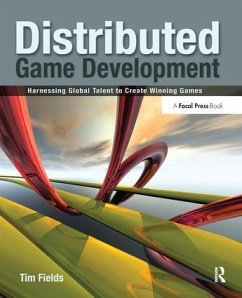
Rna: Computational Methods for Structure, Kinetics, and Rational Design: Volume One
Versandkostenfrei!
Versandfertig in über 4 Wochen
117,99 €
inkl. MwSt.
Weitere Ausgaben:

PAYBACK Punkte
59 °P sammeln!
Comprising two volumes, RNA: Computational Methods for Structure, Kinetics, and Rational Design is a comprehensive treatment of computational methods concerning the secondary structure, folding kinetics and rational design of RNA. Volume One concerns energy and structure and is divided into five chapters. Chapter 1 describes the molecular structure of ribonucleotides, basic classes of RNA and databases of RNA sequences and structure. Chapter 2 presents the basic concepts of thermodynamics, since thermodynamics-based algorithms constitute an essential tool in rational design of functional RNA m...
Comprising two volumes, RNA: Computational Methods for Structure, Kinetics, and Rational Design is a comprehensive treatment of computational methods concerning the secondary structure, folding kinetics and rational design of RNA. Volume One concerns energy and structure and is divided into five chapters. Chapter 1 describes the molecular structure of ribonucleotides, basic classes of RNA and databases of RNA sequences and structure. Chapter 2 presents the basic concepts of thermodynamics, since thermodynamics-based algorithms constitute an essential tool in rational design of functional RNA molecules. Chapter 3 describes how empirical secondary structure energy parameters are obtained from ultraviolet absorbance experiments via Van 't Hoff plots and least-squares data fitting. Chapter 4 describes methods from combinatorics, automata and formal language theory, and complex analysis. Chapter 5 provides an overview of some of the most important thermodynamics-based algorithms related to secondary structure. Exercises and solutions are provided at the end of every chapter and source code is available at the book's website (sometimes including computer programs using Python and extensions Numpy and Scipy). This book provides the nuts, bolts and tools to take the next steps in computational RNA synthetic biology. It is perfect for advanced undergraduate, graduate and post-graduate readers having analytical interests and skills from areas such as physical chemistry, physics, mathematics, computer science, and statistics. Instructor slides, computer programs and solutions to all exercises from Volumes 1 and 2 can be found at the following website: https://github.com/pgclote/RNA-Computational-methods-for-structure-kinetics-and-rational-design-Solutions-slides-etc.-.













